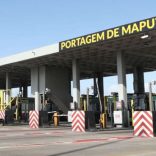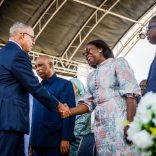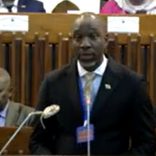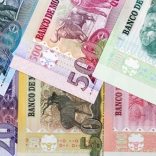Mozambique: Government cuts tolls by up to 60% from 15 May - Lusa report
Mozambican debt restructuring could help the country out of crisis

File photo
In addition to the devaluation of the metical, rising inflation and rising public debt, Mozambique faces falling commodity prices, the effects of natural disasters and the political-military crisis between the Government and the armed wing of the National Resistance Mozambican (RENAMO).
In this less than optimistic scenario, the interest rates charged on Mozambique’s public debt have risen to 25.1 percent a year, the highest in the world, making the country the riskiest nation to invest in. DW Africa asked economic analyst Tiago Dioniso, from Eglestone Consulting, about the debt crisis.
DW Africa: Mozambique’s public debt interest rate has become the highest in the world last week, at 25.1 percent a year, surpassing Venezuela as the most risky country to invest in the world. Who is going to lose out on this debt crisis? Governments or the banks that lent money?

Tiago Dionísio (TD): Firstly, interest rates on debt have corrected a little and have already fallen by more than 1 percent, almost 1.5 percent in fact from this maximum, because the Government has since proposed an extension of maturity to the creditors instead of proposing an immediate loss to creditors. This has eased the pressure on interest rates on Mozambican debt. So now the government will renegotiate its external debt with creditors and this is one of the key steps to resuming negotiations with the International Monetary Fund.
DW Africa: The IMF can move forward with a new aid program to Mozambique, but only if “hidden” public debts are audited independently and renegotiation with creditors is successful. In its perspective, what is there to do?
TD: Natural gas projects in the country are slightly behind the initial estimates and therefore it will take a few more years until the Mozambican state can collect the revenues from these projects. Therefore the Government wants to renegotiate the payment of interest and delay payment of capital in particular. The proposal is now until 2023, 2024, when these projects are already operational and the Government is able to raise revenue from them.
DW Africa: Could it be said that the investors in Ematum, Prodindicus and Mozambique Asset Management were “naive”?
TD: I do not think so. Investors know that there is always a great risk in certain types of investments. I think this issue of hidden debts was surprising to everyone. Now it is important to point out that, according to the IMF, everything indicates that there will be no more hidden debts and therefore it is hoped that the conditions will be created in the near future to resume negotiation with the country. The latest news is that Mozambique is likely to receive an IMF package in the last quarter of 2017, all of which are steps to help the country’s credibility and to recover from this year, which has been particularly difficult.












Leave a Reply
Be the First to Comment!
You must be logged in to post a comment.
You must be logged in to post a comment.